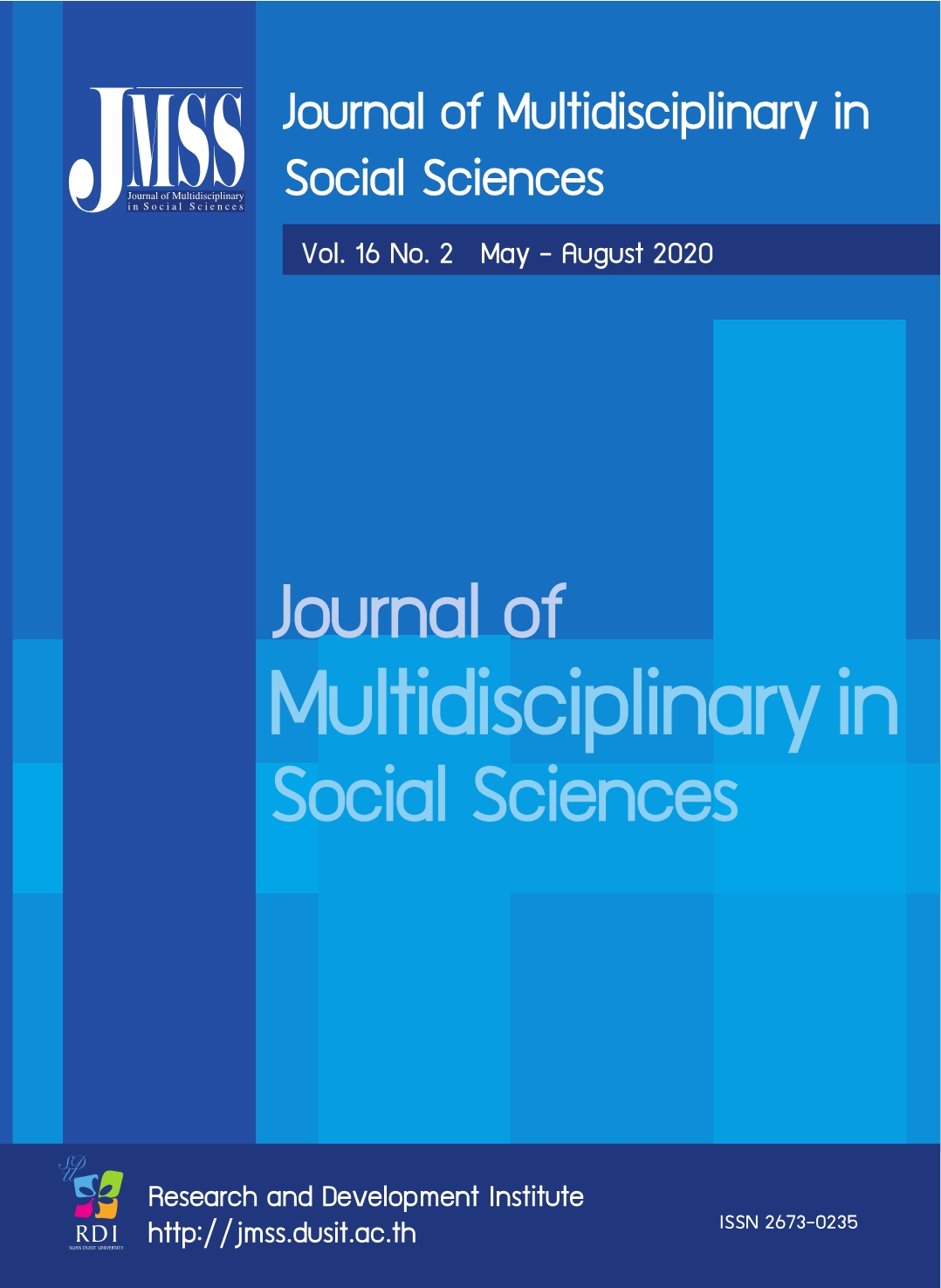Area-Based Action Curriculum: Innovation in Education for Sustainable Development of Tai Lue Cultural Community, Thailand
Keywords:
Area-based action curriculum, Cultural community, Tai Lue, Innovation in educationAbstract
The objectives of this researchare to; (1) present educational innovation in the process of establishing the true potential of the Tai Lue community in Chiang Kham and (2) study the process of creating capacity through the use of Area-Based Action Curriculum of the Tai Lue community in Chiang Kham. This research study utilizes a mixed-method research approach with an integration of Participatory Action Research-PAR, qualitative research, and quantitative research. The number of subjects included in this study, which uses the area-based action curriculum of the Tai Lue Chiang Kham community, is comprised of 20 external people and 45 students who studied in the community's educational institutions. As a result, the procedures and processes of this approach were implemented by people embedded within the community.
The findings indicated that the use of the Area-Based Action Curriculum helps in developing the expanded potential of the Tai Lue Chiang Kham ethnic community and the participants were interested in curricular activities, especially those associated with active-learning practices. Consequently, community members hold the potential of creating their own cultural curriculum. Furthermore, the study of the Area-Based Action Curriculum of the Tai Lue Chiang Kham community of Phayao province in Thailand, involved the process of enhancing the community’s potential in order to further develop aspects of cultural tourism. Ultimately, the process employed in this study would allow the community to serve as a model that has embraced sustainable forms of eco-cultural tourism.
References
Abhakorn, R. (n.d.). Tailue. Bangkok: Matichon.
Anderson, B. (2009). Imagined communities: Reflections on the origin and spread of nationalism. Bangkok: The Foundation for the Promotion of Social Science and Humanities Textbooks Project.
Anukunwathaka, N. (2011). The activation of memories and cultural reconsolidation of Chiangkham Thai-Lue community, Phayao Province from 1977 to 2007 (Master’s thesis). Chiang Mai: Chiang Mai University.
Buason, R. (2013). Mixed methods research and evaluation. Bangkok: Chulalongkorn University Press.
Bureau of International Cooperation Ministry of Education Thailand. (2019). The UNESCO Global Network of Learning Cities – GNLC. Retrieved June 12, 2020, from https://www.bic.moe.go.th/index.php/unesco-others-menu/unesco-menu/unescognlc-4-7-2562
Chareonwongsak, K. (2001). Community Ism: Through the Collapse of The Community Crisis. Bangkok: Success Media Ltd.
Choei-keewong, U. (2002). Local curriculum: Strategies of learning reformation. Bangkok: Bhannakij Press.
Chuesa-art, S. (1995). Tai Lue - Lanna. To Xishuangbanna. Education Office in Chiang Kham, Phayao Province.
Facer, K. (2009). Towards an Area-Based Curriculum: insights and directions from the research. London: RSA.
Garvin, D. (2000). Learning in action: A Guide to putting the Learning Organization Handeson and Tallcottparson (4th ed.). New York: the free press.
Kaesang, P. (2016). Action Research. Bangkok: Publisher of Chulalongkorn University.
Kemmis, S., & McTaggart, R. (1998). The Action Research Planner. Geelong, Victoria: Deakin University Press. Mangkhang, C. (2018). Ideology: Social Studies for All Ideology: Social Studies Curriculum for All (3rd ed.). Bangkok: Chulalongkorn Printing University.
Moerman, M. (1965). Who are the Lue? Ethnic identity in a complex society. Retrieved June 9, 2020, from https://www.academia.edu/American
Siritrangsri, P. (2010). Research on scenario of Thai education in the next 10 – 20 years. Bangkok: Office of the Education Council.
Sukkhata, S. & Boonnak, R. (2015). Discourse analysis of Thai nation in social studies and Historical textbook. Journal of Interdisciplinary Research: The 4th edition of graduate studies, 1 (Jan-Mar 2015).
Taba, H. (1962). Curriculum development: Theory and practice. New York: Harcourt, Brace & World.
Wanliphodom, S. (2008). A Guide to consider the meaning of cultural landscape. Internal study and local awareness. Bangkok: Lek-Prapai Foundation.
Yan Jong, C. (2005). “Tai people” are not “Thais” but both are ethnic and linguistic relatives. Bangkok: Pimdee
Downloads
Published
How to Cite
Issue
Section
License

This work is licensed under a Creative Commons Attribution-NonCommercial-NoDerivatives 4.0 International License.








